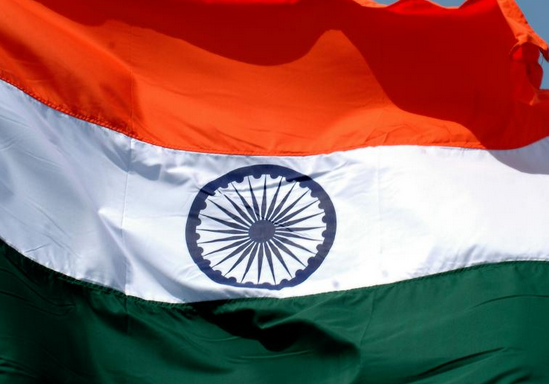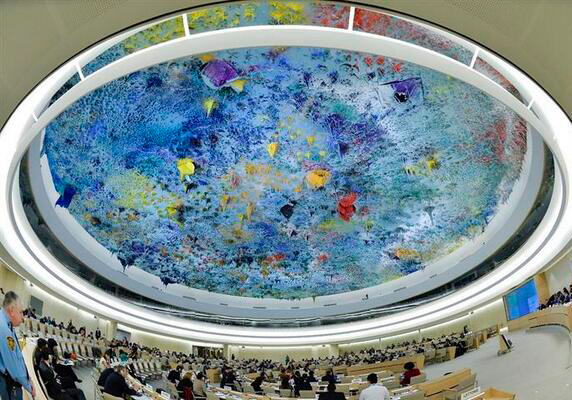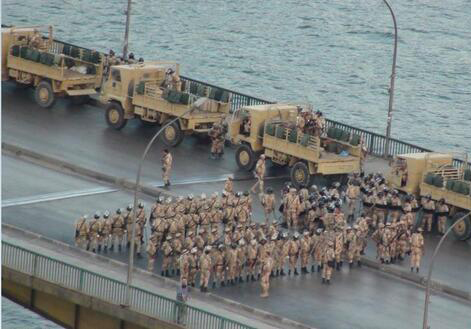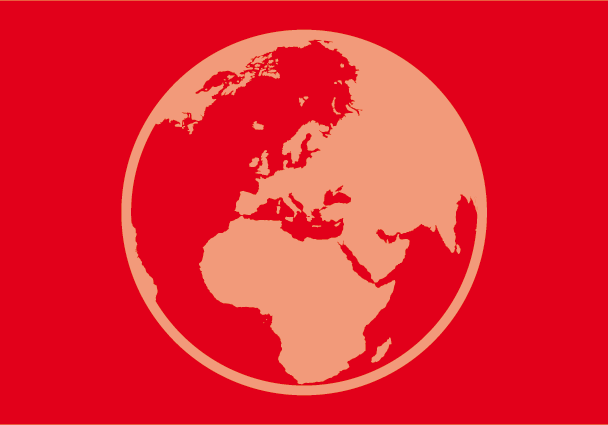
Jul 18, 2016 | News
Indian authorities must immediately, independently and thoroughly investigate all incidents of excessive, particularly lethal, use of force in Kashmir over the past week, the ICJ said today.
Indian security forces have an obligation to comply with Government commitments to avoid using excessive force to quell protests, and must be held to account for any violations.
Violent clashes between protesters and security forces broke out in Kashmir after a popular Kashmiri militant leader, Burhan Wani, was killed, along with his two associates, by security forces on 8 July.
More than 35 people have been killed, including one security officer, and over 2000 injured. In some areas, protestors threw stones and attacked police stations. Security forces used tear gas, pellet guns and firearms.
“Security forces must respect the right to life at all times, and only use force when strictly necessary and in a manner proportionate to the legitimate performance of their duties,” said Sam Zarifi, ICJ Asia Director.
“The number of persons injured over the past week, as well as the nature of their injuries, indicates the urgent need for investigations. If security forces use any kind of weapon, they are governed by international standards that require force to be used as a last resort in self-defence or defence of others against an imminent threat of death or serious bodily injury, and in a manner to minimize injuries,” he added.
Indian security forces began using pellet guns routinely after 2010 following heavy criticism of their misuse of firearms against protesters.
But during the recent protests, the use of pellet guns, considered non-lethal weapons by security forces, has resulted in serious and potentially permanent health consequences for persons affected, including eye injuries and organ damage, which have required urgent treatment.
A recent report has suggested that at least a 100 people have sustained eye injuries. Pellet guns have also injured non-protestors, including children.
“Indian authorities should stop the use of pellet guns until they can assess whether these weapons can be used in a manner that is consistent with human rights standards on the use of force, including whether they are inherently inaccurate, indiscriminate and arbitrary; and ensure that the use of all non-lethal weapons is strictly regulated, because they have the capacity to cause serious and permanent injury,” Zarifi said.
Hospitals in Kashmir are struggling to cope with the high number of patients. There have also been reports that security forces have stopped ambulances carrying injured people, and disrupted the functioning of hospitals.
“All allegations of excessive use of force and other unlawful behaviour by the security forces must be investigated immediately. At the same time, protesters who resort to violence or injure other people must also be properly investigated and brought to justice by proper trials,” he added.
“Security forces absolutely must not interfere with access to health care. In addition to prompt, independent and effective investigations on this, the Government must proactively ensure that all injured persons are able to safely access necessary and quality health care,” he added.
Indian Prime Minister Narendra Modi has called on security forces in Kashmir to exercise “absolute restraint”.
The Chief Minister, Mehbooba Mufti, has committed to ensuring accountability in all cases where excessive force was used by security forces.
It is crucial that the Government follows through on this promise, and conducts thorough, independent and prompt investigations.
In the past, violations by security forces have largely enjoyed impunity in Kashmir for several reasons, including laws like the Armed Forces Special Powers Act that shield security forces from legal accountability for human rights violations.
For example, in 2010, clashes between protestors and security forces in Kashmir resulted in over 100 deaths. Very few, if any, of these have been credibly investigated to date.
Current events also cast doubt over whether the reforms introduced since have improved policing practices and made security forces more accountable.
The ICJ is therefore calling on Indian authorities to:
- Order that security forces desist from using excessive and unlawful force, comply with international human rights law, and only use force when strictly necessary and in a manner proportionate to the legitimate performance of their duty;
- Promptly, independently and effectively investigate all allegations of excessive and lethal uses of force by security forces, make the results of these investigations public, initiate prosecutions where appropriate, and ensure that all victims are provided with effective redress;
- Provide necessary and quality health care to injured persons, ensure they are able to access it, that hospitals are stocked and equipped to deal with the increased patient load, and that all allegations of security forces attacking ambulances and hospitals are immediately investigated.
Contact:
Sam Zarifi, ICJ Regional Director for Asia and the Pacific, t: +66807819002; e: sam.zarifi(a)icj.org
India-Kashmir statement-News-Press release-2016-ENG (full text in PDF)

Dec 3, 2015 | News
The ICJ condemned the passage of the National Security Council bill by Malaysia’s House of Representatives today. The passage of the bill underlines the need to establish reforms in the lawmaking processes in the country, the Geneva-based organization says.
The ICJ calls on the Government of Malaysia to undertake these reforms immediately.
The bill, hastily tabled at the House of Representatives on 1 December 2015 by the Government, was passed by a vote of 107 in favour and 77 against the proposal.
Members of the ruling party, Barisan Nasional, voted overwhelmingly in its favor.
The vote took place despite repeated calls from Malaysian civil society, opposition lawmakers, and human rights advocates to delay consideration to allow for extensive debate and adequate consultations on the draft legislation.
The ICJ deplored the manner in which the government steamrolled the bill to passage.
“The same rushed maneuvers occurred when the Prevention of Terrorism Act (POTA) and amendments of the Sedition Act were hastily passed in parliament earlier this year,” observed Emerlynne Gil, ICJ’s Senior International Legal Adviser for Southeast Asia.
“There seems to be a disturbing pattern of avoiding deliberative care on legislation that is both addressed to serious security concerns that have the greatest implications for human rights,” she added.
The ICJ considers that the poorly conceived legislation gives overbroad powers to the Prime Minister and the security forces which is inconsistent with the rule of law and could lead to serious human rights violations
The bill establishes a National Security Council (NSC) that will be the central authority in the government on matters pertaining to national security.
The NSC will be headed by the Prime Minister and composed of the Deputy Prime Minister, Minister of Defence, Minister of Home Affairs, Minister of Communication and Multimedia, Chief Secretary, the Commander of the Armed Forces, and Inspector-General of Police.
Under the bill, the Prime Minister is granted the power to declare any part of Malaysia as a “security area” if it is found by the NSC that such area is under serious threat from any person or entity that could harm the general public, the economy, infrastructure or other national interests.
Any part of the country may be declared a “security area” by the Prime Minister for up to six months and the declaration may be renewed an infinite number of times.
A Director of Operations is also to be appointed to oversee the operations over the “security areas”.
The specific powers of the Director of Operations are left vague, but they are overbroad and therefore prone to abuse.
They apparently include authority to prevent any person from entering these “security areas”, to transfer persons out of these areas, to impose curfews, and at least temporarily, to take possession of any property necessary in the interest of national security or for the accommodation of the security team.
The security team under the Director of Operations will have the power to conduct warrantless arrests and warrantless searches and seizures.
There are no processes specified by which affected persons may challenge such actions, either before a court or administrative body, nor are there other procedural safeguards.
Any members of the security team would be authorized to “use any amount of force against a person or entity to the extent that is reasonable and necessary within the circumstances to protect national security”.
The ICJ notes that under international law, lethal force may only be used to the extent strictly necessary to protect life.
Finally, the draft law provides immunity from any legal proceeding for members of the NSC, the Director of Operations, the security team, and other government staff involved in the administration of the “security area” for carrying out their duties and functions under the law.
There is no exception even in cases involving serious violations of human rights and crimes under international law, for which immunity is not permitted.
“The wide ranging powers conferred to members of the NSC and the security team clearly lack any form of safeguards and will inevitably lead to arbitrary exercise of authority, in contravention of the rule of law. This bill could very likely be used to further restrict freedom of expression and opinion and other rights in the country,” said Emerlynne Gil.
Vague and overbroad language in laws are inconsistent with the rule of law, contravening the principle of legality, the ICJ says.
This poses particular hazards in respect of national security legislation.
The bill will now need to be passed by the Senate and thereafter, the Malaysian King will have to assent to it so that it becomes law.
The ICJ expects the bill to be passed by the Senate and assented to by the King without thorough deliberations.
Nevertheless, it still calls on both the Senate and the King to reject the present draft, with a view to returning it the House to make necessary reforms in line with the rule of law.
Contact:
Emerlynne Gil, ICJ Senior Legal Adviser (Bangkok), t: +66840923575, e: emerlynne.gil(a)icj.org

Jun 13, 2014 | Advocacy, Non-legal submissions
The ICJ today delivered an oral statement on extrajudicial, summary or arbitrary executions, expressing concerns about recent and pending legislation in Pakistan on the use of firearms and other force by law enforcement officials.
The joint statement, delivered at the UN Human Rights Council during the interactive dialogue with the Special Rapporteur and on behalf also of the Human Rights Commission of Pakistan (HRCP), expressed appreciation for the Special Rapporteur’s emphasis in his study on the issue, on the need for states to bring domestic laws on the use of force by law enforcement agencies, into line with international standards.
The statement noted that it was not clear whether the Protection of Pakistan Ordinance (PPO) 2013, which is currently in force, and the proposed Protection of Pakistan Bill (PPB) 2014 currently being debated in Parliament, were provided for review.
The statement explained how the PPO and PPB contain provisions that give law enforcement agencies overbroad powers to use firearms without independent accountability, in contravention of international standards. They increase the risk of use of excessive and lethal force and arbitrary deprivation of life.
The full statement may be downloaded in PDF form: Advocacy-HRC26-SREJEs-12062014.
The Report of the Special Rapporteur is available here.

Sep 4, 2013 | News
The ICJ calls on Egyptian authorities to conduct a thorough, effective, independent and impartial investigation into the unlawful and excessive use of force by security and armed forces, in particular during the dispersal of the Rabaa Al-Adawyia and Annahda pro-Morsi sit-ins on 14 August.
The statement comes as the ICJ concluded a high-level mission on 29 August to assess the human rights and rule of law situation in Egypt following the ouster of President Mohamed Morsi by the armed forces.
The use of live ammunition to disperse the sit-ins and against pro-Morsi protesters has resulted in the deaths of more than 1000 individuals, most of which appear to amount to unlawful killings.
The investigation should also examine violent attacks by some pro-Morsi supporters, including the use of firearms, against security officers, police stations, and bystanders, and attacks on religious minorities, in particular Christians, their churches, buildings, and homes.
“The Egyptian authorities should investigate the unlawful use of live ammunition against protesters with a view to holding the perpetrators to account, providing remedy and reparation to the victims, and ending the impunity the security and armed forces have enjoyed over human rights abuses,” said ICJ Commissioner Kalthoum Kennou. “In policing demonstrations, security must act to safeguard the right to life, in particular by ensuring that the decision to use lethal firearms is made only when strictly unavoidable in order to protect life.”
The ICJ is also concerned that following the crackdown, thousands of people were arrested under conditions that violate due process guarantees, in particular the rights to have access to a lawyer and to family members.
Hundreds are also reportedly missing and the ICJ fears many of them have been subjected to enforced disappearance.
Hearings for renewing pre-trial detentions orders are conducted in prisons and, as a result of the large number of detainees, most are either not represented by legal counsel, or are not able to have access to and to consult with their lawyers. Many of the detainees are being held arbitrarily under administrative detention, the ICJ further notes.
“The Egyptian authorities must ensure the rights of those arrested to liberty, security of person, to have access to lawyers and family members and to challenge the lawfulness of their detention, ” said ICJ Commissioner Shawan Jabarin ” the Egyptian authorities must fully communicate the list of all the detainees, their places of detentions and the fate and whereabouts of the hundreds who are reportedly missing. They must also comply with their legal obligations under international law and ensure that no one is subjected to enforced disappearance.”
The Office of the Public Prosecutor has charged thousands of individuals who were arrested following the ouster of president Morsi and the dispersal of the sit-ins, including with “ attempted murder”, “opposing authorities”, “attacking law enforcement officials”, “causing disorder”, “blocking roads” and “throwing Molotov cocktails at the police”.
The office also charged President Morsi and his advisers, including leaders of the Muslim Brotherhood, with, among other charges, “inciting followers to commit premeditated murder, use of force, use of firearms and illegal attacks on authorities.”
Moreover, seventy-five judges who called for the reinstatement of former President Morsi have been investigated by an investigating judge, appointed by the Minster of Justice, for “backing a particular political party and deviating from judicial traditions and its values of neutrality, impartiality and non-partisanship.”
The ICJ notes, however, that neither the Office of the Public Prosecutor nor the Minister of Justice have so far investigated, ordered the investigation, or brought criminal action for the unlawful killings of protesters by armed and security forces following the ouster of President Morsi.
In meetings with the ICJ delegation, state officials, including the Minister of Justice, argued that the use of live ammunition and lethal force to disperse sit-ins was legitimate and in line with both national and international standards.
“In times of crisis, judges and prosecutors must safeguard and uphold the rule of law, not curtail the enjoyment of fundamental rights and freedoms,” said Said Benarbia, ICJ Senior Legal Advisor for the Middle East & North Africa Programme.
“The Egyptian authorities must therefore ensure that the Office of the Public Prosecutor and courts are not politicized or used as a means to crackdown on political opponents and protesters, or to shield armed and security officials responsible of human rights abuses from accountability,” Benarbia added.
Contact:
Said Benarbia, ICJ Senior Legal Adviser of the Middle East and North Africa Programme, tel: 41 22 979 38 17, e-mail: said.benarbia(a)icj.org
Additional information:
The ICJ delegation was led by Justice Kalthoum Kennou, judge at the Tunisian Cassation Court and ICJ Commissioner, and Mr. Shawan Jabarin, ICJ Commissioner and General Director of Al-Haq, an ICJ affiliate in the occupied Palestinian territories. The delegation met with Minister of Justice Adel Abdelhamed Abdullah, Minister of Transitional Justice and National Reconciliation Amin El Mahdi, members of the judiciary, including President of the Judges Club Ahmed El Zend, lawyers, civil society, and families of victims of human rights violations after the dismissal of former President Mohamed Morsi.

Mar 18, 2003 | News
The ICJ today expressed its deep dismay that a small number of states are poised to launch an outright illegal invasion of Iraq, which amounts to a war of aggression.









